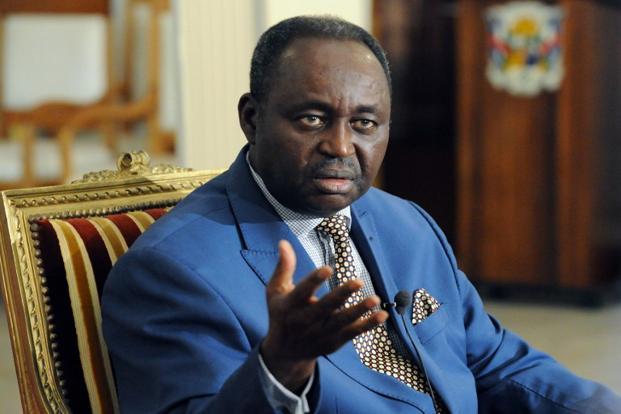
For Nathalia Dukhan of the NGO Enough Project, rewards given to those responsible for violence, such as rampant impunity, fuel a vicious cycle of instability.
« We avoided mass massacres, allowed a process of intercommunity reconciliation, the reconstitution of the Central African state (…), » declared French Defense Minister Jean-Yves Le Drian announcing the success and the end of the war. French military operation, Sangaris, in the Central African Republic. It was last October and with this withdrawal, the operation carried with it the international attention, plunging the Central African Republic in the abyss of oblivion.
However, since the end of September, civilians have been living at the rate of massacres, mostly in the north-western, central and eastern regions of the country, which have been taken hostage by armed groups. The record of the clashes of recent months is cumbersome. At least 287 civilians have been killed according to the UN, but this figure is largely undervalued as armed groups hide the record of their abuses. In the capital, Bangui, renewal of violence erupts sporadically and always cause fear of the scenario of the conflagration. In 2017, more than 14 armed groups control the national territory. In the occupied areas, executioners and victims cohabit and taxes are levied, obliging civilians to participate in perpetuating the violence in which they are the main victims.
In his recent report, the UN Secretary General unequivocally announced that « tensions have been exacerbated by a lack of tangible progress in addressing the root causes of the conflict and the position of the leaders of armed groups Who seek to strengthen their bargaining power « .
The instrumentalisation of sectarian violence
In 2014, at the height of the crisis in the Central African Republic, the conflict took the form of a civil war between Muslim and Christian communities, the latter considering Muslims as accomplices, active or passive, of the exactions committed by the Seleka in 2013. The sectarian dimension of the conflict continues and reveals that the leaders of the armed groups use it to serve their interests.
To justify their existence and obtain the necessary popular support, warlords fuel and coordinate acts of violence that encourage members of the ethnic or religious groups that are closest to them against other groups. The creation of a climate of terror creates a sense of need for protection among civilians that leads young people to join the armed struggle and stay there for as long as insecurity persists.
The ongoing threat of a coup allows these leaders to strengthen their bargaining power. The greater their destabilization power, the greater the access to negotiating tables and strategic political positions, military integrations and de facto partitioning. In reality, these leaders have no intention of disarming or losing their sources of enrichment.

The dangerous legitimization of armed groups
President Touadera, with the support of the international community, chose to dialogue with the leaders of the armed groups by renouncing a ‘witch hunt’ and negotiating a voluntary disarmament, thus validating the strategy of the disruptive elements. Some warlords, under UN sanction, have already been rewarded. This is the case of a notorious anti-balaka leader, Alfred Yékatom, nicknamed ‘Rambhot’, who was elected deputy to the National Assembly by making use of threats and intimidations. By the end of 2016, however, Yékatom still had an important influence on certain militias.
Moreover, among the leaders of the Seka, this persistent desire to gain power has turned into a genuine plea for secession of the country. The main supporter is the group headed by rebel leader Nourredine Adam and Michel Djotodia, former president and head of the Seleka coalition. Last October, a document inside the group justified their agenda by denouncing an impossible cohabitation and incompatibility between the Christian population of the south-west and the Muslims of the north-east region. A logic that borrows the strategy of « divide to rule » but without any other basis.


